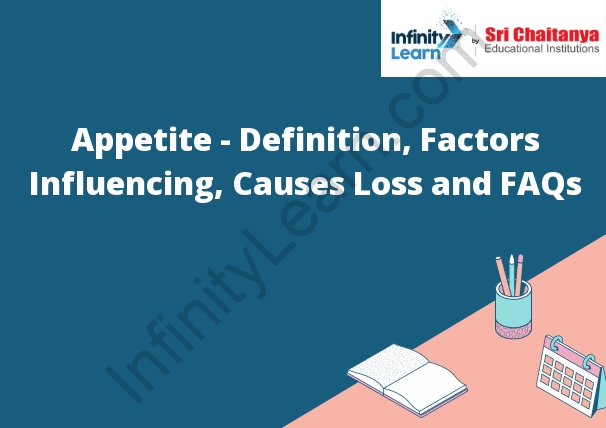Table of Contents
What is Appetite?
Appetite is the desire to eat food. It is controlled by the hypothalamus, a part of the brain. The hypothalamus monitors the levels of certain chemicals in the blood, such as glucose and leptin. When the levels of these chemicals rise, the hypothalamus sends a signal to the brain that causes the person to feel hungry.

Factors Influencing Appetite
There are many factors that can influence someone’s appetite. Some of these factors include the time of day, how much they have eaten recently, what they have eaten recently, how active they have been, and how stressed they are.
Mental health
is a state of well-being in which every individual realizes his or her own potential, can cope with the normal stresses of life, can work productively and fruitfully, and is able to make a contribution to her or his community.
Mental health is not just the absence of mental illness. It is a state of well-being in which every individual realizes his or her own potential, can cope with the normal stresses of life, can work productively and fruitfully, and is able to make a contribution to her or his community.
Mental health is important at every stage of life, from childhood and adolescence through adulthood. It enables people to think, feel and behave in ways that allow them to enjoy life and deal with challenges.
Depression
is a condition that is characterized by persistent feelings of sadness, emptiness, worthlessness, and hopelessness. People who are depressed may also have difficulty sleeping, eating, and concentrating. Some people may experience physical symptoms such as fatigue and pain.
Eating Disorders
There are many different types of eating disorders, but they all have one thing in common: an unhealthy relationship with food.
People with eating disorders may obsessively diet, binge eat, purge, or use other unhealthy methods to control their weight. The underlying cause of eating disorders is usually a combination of emotional and psychological factors, such as low self-esteem, body image issues, and emotional stress.
The most common eating disorders are anorexia nervosa, bulimia nervosa, and binge eating disorder.
Pregnancy
is a condition of having a developing fetus in the uterus. It is typically accompanied by morning sickness, fatigue, and other symptoms. A pregnant woman’s body undergoes many changes, including the enlargement of the uterus, the secretion of hormones, and the development of breasts.
A pregnant woman should eat a healthy diet, get plenty of rest, and avoid harmful substances. The fetus is nourished by the mother’s blood and tissues. At the end of the third month, the fetus is about 3 inches long and weighs about 1/2 ounce.
The fetus continues to grow and develop. By the end of the ninth month, it is about 20 inches long and weighs about 7 pounds. The baby is ready to be born when its head begins to descend into the pelvis. The baby is born by the process of labor, which is the contractions of the uterus that push the baby out.
Medication
is a drug that is prescribed by a doctor to treat an illness or condition. Medication can come in the form of a pill, liquid, or injection.
When a person is prescribed medication, it is important to take it as directed by the doctor. Taking medication as directed helps to ensure that the person is getting the full benefits of the drug.
It is also important to keep track of any medication that is taken. This includes both prescription and over-the-counter drugs. Keeping track of medication helps to ensure that no interactions occur between different drugs.
Other Conditions
There are many conditions that can cause chronic pain. Some of these conditions are:
Arthritis
Cancer
Diabetes
Fibromyalgia
Heart disease
Lupus
Multiple sclerosis
Osteoporosis
Parkinson’s disease
If you have chronic pain, it’s important to see a doctor to find out the cause.
How to Boost Appetite?
There are many ways to boost appetite. Some people find that eating smaller, more frequent meals throughout the day helps to boost their appetite. Others find that eating spicy foods or drinking warm liquids such as broth or tea can help stimulate the appetite. Additionally, some people find that getting regular exercise or spending time outdoors in the sun can help to increase their appetite.








